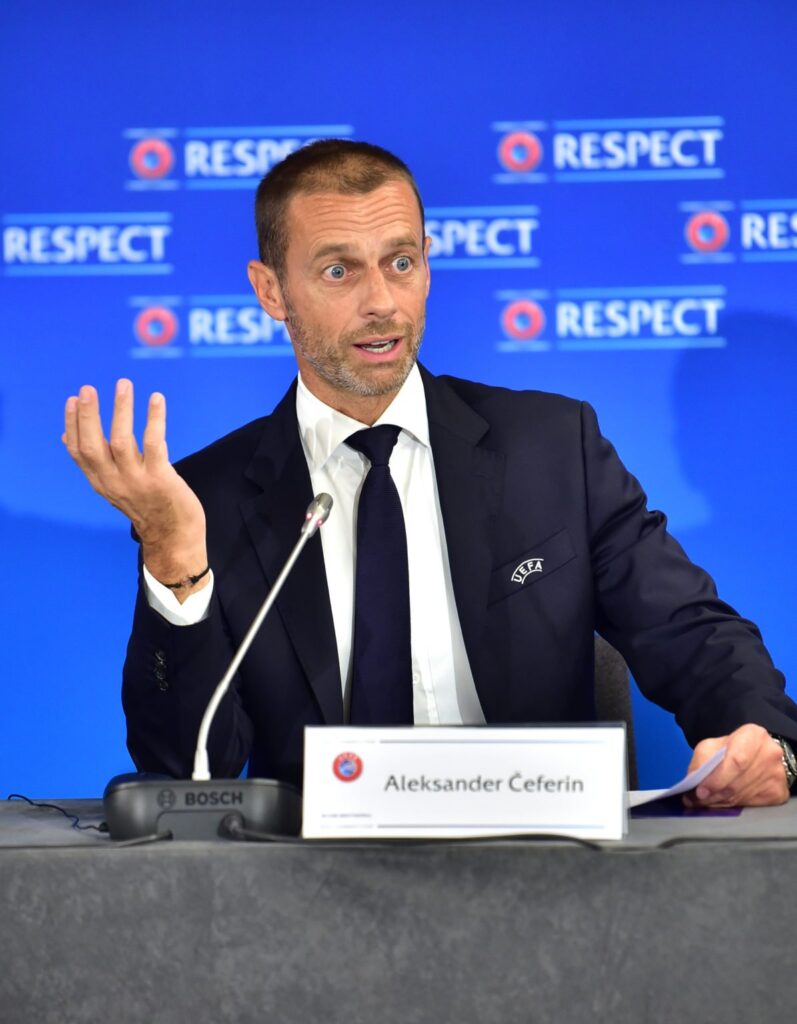UEFA president Aleksander Ceferin warned that many European clubs are “compromising their economic sustainability” due to ever-increasing player wages which have risen on average by 16% compared to pre-pandemic levels.
Europe’s soccer governing body released its Benchmarking report, a review of the European football finance landscape, which highlighted how the sport is returning to normality after the economic challenges of the COVID-19 pandemic.
The report said revenue across nearly 150 clubs is up by an average of 4.6% while sponsor and commercial revenue was 13% higher than pre-pandemic levels after they missed out on seven billion euros ($7.49 billion) during the pandemic.
However, there was concern over operating costs going up by 11% while finance costs have increased 18%, with player wages being the main culprit.
“Despite the unprecedented turmoil of recent years, wages have continued to grow, rising on average by 16% compared to pre-pandemic standards,” Ceferin said.
“Top-division players’ salaries, for example, have more than doubled during the past decade.
“And while this is not a negative trend per se, it is clear that many are compromising their economic sustainability in their reckless pursuit of success.”
The report showed a 108% increase in player wages over the last 10 years and they have continued to rise since 2019 despite the revenue decreases during the pandemic.
UEFA also said the January transfer window was dominated by English clubs who accounted for about 31% of global transfer activity and a whopping 53% of global transfer spending.
English clubs spent a total of 830 million euros ($887.77 million) in the winter window while earning only 100 million euros. The numbers differ from FIFA’s report which said English clubs spent $898.6 million last month.
“A combination of the start of the new uplifted English TV deal, new club investors and a balanced bottom half of Premier League table, appear to have fuelled record English club January window activity,” UEFA’s report said.
But Ceferin said UEFA must remain vigilant and “strictly implement” rules related to financial sustainability at both the European and domestic levels.
“UEFA took the first step last summer by introducing the first squad cost ratio rule in the new Financial Sustainability Regulations, restricting spending on wages, transfers, and agent fees,” Ceferin added.
“Clubs will be assessed against limit on these costs, moving from 90% in 2023 to 70% in 2025, providing a timely and direct measure between squad costs and income to encourage more performance-related costs, while limiting the market inflation of wages and transfer costs of players.
“The key is now to remain fair, strict, and consistent.”

